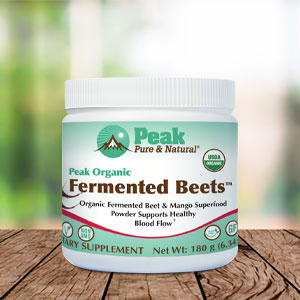Get Easy Health Digest™ in your inbox and don’t miss a thing when you subscribe today. Plus, get the free bonus report, Mother Nature’s Tips, Tricks and Remedies for Cholesterol, Blood Pressure & Blood Sugar as my way of saying welcome to the community!
The lasting damage anger does to your blood vessels

Emotions have a very real impact on our physical health — whether for good or for ill.
Negative moods, like sadness, have been shown to fuel chronic inflammation and the poor health that comes with it.
On the other hand, positive emotions have been proven to significantly improve health and even result in changes at the cellular level.
So what can one of the strongest of our emotions — anger — do to your body?
According to researchers at the Columbia University Irving Medical Center, even brief bursts of anger could put you on the track to heart disease or stroke…
Anger impairs blood vessel function
Previous observational studies have linked feelings of negative emotions, such as anger, sadness and anxiety with having a heart attack or other cardiovascular disease events.
And since impaired vascular function has also been linked to an increased risk of heart attack and stroke, the researchers focused on how negative emotions may impact blood vessel function.
To find out, they recruited 280 adults randomly assigned to one of four emotional tasks for eight minutes.
Participants had to either recall a personal memory that made them angry, remember a personal memory of anxiety, read a series of depressing sentences or repeatedly count to 100 to induce an emotionally neutral state.
And the researchers found that when it comes to your blood vessels, anger has a strong and definitive impact…
In just eight minutes of feeling angry, the normal function of cells lining the blood vessels was impaired to the point they were no longer able to relax the way they should — something that can significantly restrict blood flow, increasing the risk of developing atherosclerosis and raising the risk of heart disease and stroke.
Not only that, the effects of anger on the blood vessels lasted up to a full 40 minutes!
“This study adds nicely to the growing evidence base that mental well-being can affect cardiovascular health, and that intense acute emotional states, such as anger or stress, may lead to cardiovascular events,” said Glenn Levine, M.D., FAHA.
Reducing anger’s effects
So how can you lessen anger’s effects on your heart and blood vessels?
For thousands of years, nasal breathing techniques have been used to control the body’s reactions to stress, anxiety and anger. But before you assume this is “mindfulness” mumbo jumbo, there’s a scientific explanation as to why this works…
Anger sends us into “fight or flight” mode triggered by the adrenal-hypothalamus-pituitary network that starts secreting the stress hormone cortisol. Breathing becomes fast and shallow, the heart races and blood pressure goes up.
But most importantly, this stress response lowers your nitric oxide (NO) levels — a natural vasodilator responsible for signaling artery cells to relax and open for normal blood flow… which sounds like what went wrong during the anger exercise where those study participants experienced impaired blood vessel function.
A previous study on veterans with and without PTSD also demonstrated that when our body experiences fight or flight too often, cellular processes, including the production of NO, become dysfunctional.
So how does nasal breathing help?
NO is released in the nasal passages, so when we breathe in through the nose, it reaches the lungs and then finds its way into the bloodstream where it “signals” normal blood flow. Long deep breaths through the nose help us deliver more to our blood vessels in moments we need it most — like during feelings of anger — or during exercise.
So when you’re angry, take the time to realize your breathing has changed and control it with deep nasal breathing by inhaling from the nose and exhaling through the mouth.
NO levels also naturally decrease with age. In addition to focusing on nasal breathing (especially if you are a mouth breather), foods like beets and spinach contain natural precursors that help the body increase NO production.
Editor’s note: There are numerous safe and natural ways to decrease your risk of blood clots including the 25-cent vitamin, the nutrient that acts as a natural blood thinner and the powerful herb that helps clear plaque. To discover these and more, click here for Hushed Up Natural Heart Cures and Common Misconceptions of Popular Heart Treatments!
Sources:
Brief anger may impair blood vessel function — EurekAlert!














